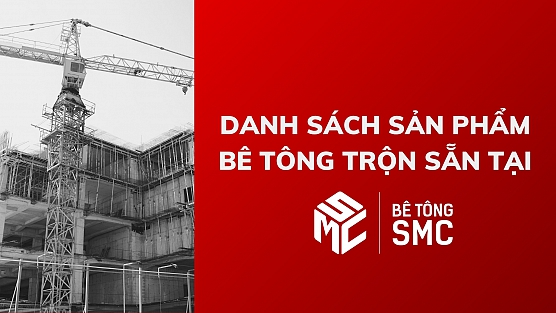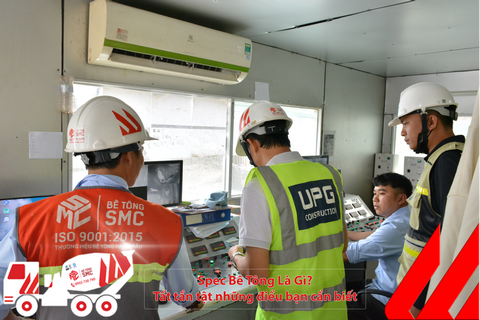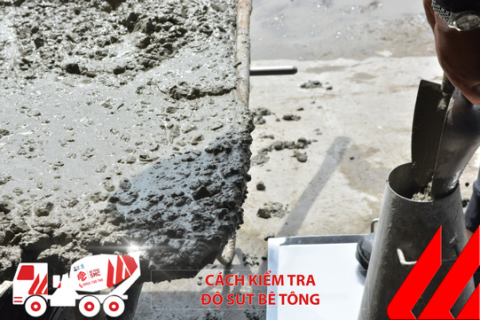Frequently asked Questions
Concrete engineering advice
Business contact
What is Sulfate-Resistant Fresh Concrete?
Concrete can be specially designed to withstand corrosive environments such as coastal areas or saline-influenced regions. In such environments, the use of specialized cement can help minimize corrosion and damage to steel structures, while also improving the water resistance of the concrete. Join SMC in exploring the advantages and practical applications of Type V sulfate-resistant concrete.1. What is Type V Sulfate-Resistant Concrete?
Type V sulfate-resistant concrete is specifically designed to combat the harmful effects of sulfate-rich environments. To achieve high sulfate resistance, this type of cement contains very low tricalcium aluminate (C₃A) content, not exceeding 5%. This composition helps reduce the formation of sulfoaluminate compounds, which are the primary cause of concrete deterioration in sulfate environments (The Constructor) (NPCA).

At SMC Concrete, we ensure the optimal and appropriate slump level, with specific characteristics as follows:
-
Slump range: from 8 ± 2 cm to 20 ± 2 cm.
-
Key quality indicators and timing since the concrete leaves the plant:
- Quality retention in the mixer truck: up to 3 hours.
- Initial setting time: approximately 5 to 7 hours.
- Final setting time: around 9 to 10 hours.
2. Characteristics and Applications of Type V Sulfate-Resistant Concrete
Composition: Type V sulfate-resistant cement contains a very low level of tricalcium aluminate (C₃A), along with other components such as dicalcium silicate (C₂S) and tetracalcium aluminoferrite (C₄AF). This combination makes sulfate-resistant cement less reactive to sulfate ions in the environment.
Properties: The key characteristics of this type of cement include its ability to resist corrosion of reinforced concrete steel and maintain high strength under harsh conditions.
Applications: This cement is typically used in structures exposed directly to soils or water with high sulfate content, such as foundations, coastal structures, and wastewater treatment plants.

At SMC, this product has been utilized in various port and saline-affected structures, such as Phú Định Port, Bến Nghé Port, Saigon Port, the Tân Hóa-Lò Gốm Canal Project, Hậu Giang Bridge, and others.
Key Advantages:
- High Resistance to Chloride Ions: Type V sulfate-resistant cement provides excellent resistance to chloride ions, minimizing the risk of steel corrosion inside concrete.
- Superior Performance in Acidic Environments: This material ensures the highest level of performance and structural integrity in sulfate-rich and other strong acid environments.
- Improved Workability and Pumpability: The cement enhances concrete workability and pumpability, making construction processes more efficient.
- Increased Concrete Strength: After application, the cement significantly improves the strength of the concrete, increasing the durability and lifespan of the structure.
- Low Heat of Hydration: The cement’s low heat of hydration helps prevent thermal cracking, ensuring better protection for the structure.
- Suitable for Vietnam’s Climate: Type V sulfate-resistant cement is especially well-suited for use in construction projects in Vietnam’s climate, where sulfate-rich soils and water can pose challenges.
 For further information, the mix ratio of fresh concrete is balanced to match the specific environmental conditions and the requirements of the project owner. You can explore more concrete products at SMC [here]. If you have any questions or need advice on concrete pumping services, don't hesitate to contact our hotline at 0903 730 780. Thank you for reading our article!
For further information, the mix ratio of fresh concrete is balanced to match the specific environmental conditions and the requirements of the project owner. You can explore more concrete products at SMC [here]. If you have any questions or need advice on concrete pumping services, don't hesitate to contact our hotline at 0903 730 780. Thank you for reading our article! Other news
Currently, ready-mix concrete is a top choice for many construction projects—both large and small—thanks to its convenience, consistent quality, and high construction efficiency. With extensive experience supplying commercial concrete for numerous key projects in the Southern region, SMC proudly offers a diverse range of ready-mix concrete products to meet the technical requirements of every type of construction.
A Comprehensive Guide to Concrete Specs – Everything You Need to Know
A Complete Guide to Concrete Specs – a set of technical parameters including concrete grade, slump, compressive strength, aggregate size, and mix ratio. This article helps you understand how to define, apply, and control concrete quality according to TCVN standards and practical construction conditions.
How to check the concrete slump
In construction and civil engineering, concrete slump test (or simple slump test) is the work performed at the construction site or in the laboratory that usually determines and measures the hardness, consistency of samples. Concrete before pouring concrete or casting maintenance, research or experiment samples.




